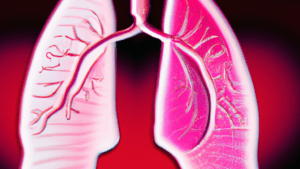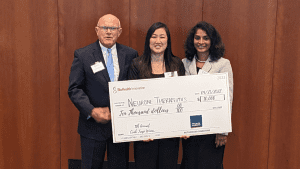
Ginkgo Bioworks Snaps up StrideBio’s AAV Gene Therapy Platform
By Alex Keown
April 18, 2023
Cell engineering company Ginkgo Bioworks expanded its gene therapy capabilities with the acquisition of RTP-based StrideBio’s adeno-associated virus (AAV) capsid discovery and engineering platform.
The acquisition of the privately-held company’s platform provides Gingko Bioworks with a large library of existing capsids that have been optimized and validated for performance and targeting across a range of application areas. Ginkgo will combine the StrideBio platform with its own end-to-end AAV gene therapy development platform. This will enable the Boston-based company to provide R&D services for gene therapy manufacturing across capsid, payload, and cell line optimization. The company believes the platform will enable its client companies to target multiple tissue types and potentially improve the safety profile of their future gene therapies.
StrideBio’s library of capsids includes advanced candidates that have been extensively tested in large animal models. Those are available for licensing and broader partnership, Ginkgo noted in its announcement.
Ginkgo’s acquisition does not include any real estate in North Carolina. One StrideBio employee will join Ginkgo’s mammalian engineering team. Financial details of the acquisition were not disclosed.
Additionally, Ginkgo receives the IP and data for StrideBio’s lead preclinical asset for Arrhythmogenic Right Ventricular Cardiomyopathy (ARVC), a rare genetic heart disease. The company intends to sell or outlicense to a commercial partner.
Over the past several years, Ginkgo has expanded its gene therapy offerings through M&A. The company acquired Circularis’ proprietary circular RNA and promoter screening platform and also struck partnerships with Biogen and Selecta Biosciences. For Ginkgo Bioworks, this is the second time in as many months the company has inked a deal in RTP. In March, the company forged a strategic agreement with Durham-based Zymtronix for its proprietary cell-free platform.
AAV platforms are the primary viral vectors used in current gene therapy programs. Ginkgo said there are still challenges related to limitations in targeted biodistribution, pre-existing immunogenicity and manufacturability.
Aravind Asokan, a StrideBio co-founder, said the company built a pipeline AAV capsids and libraries that improve current gene therapy limitations through a focus on reducing vector dose and improving safety by limiting off-target biodistribution. With its expertise and resources, Ginkgo will be able to amplify those capabilities and enable the development of multiple effective gene therapies, Asokan said.
StrideBio’s platform, dubbed STRIVE, uses a structural-engineering approach for generating novel AAV capsids to address these limitations. The StrideBio platform is designed to generate capsids capable of overcoming the limitations of first-generation gene therapies. That includes reduced seroprevalence, improved tropism for cell types beyond the liver such as those in the central nervous system and muscle tissue, the company said. Additionally, the platform is designed to increase gene transfer efficiency with the potential for improved safety and reduced doses in the clinic.
STRIVE has produced a library of candidates that includes mature assets. Many of these assets have demonstrated evidence supporting performance and targeting across multiple animal models, Ginkgo said.
“We are thrilled to integrate the STRIVE platform and know-how into our foundry to augment our capabilities in capsid engineering, and we look forward to continuing to expand our existing end-to-end capabilities in AAV discovery and manufacturing,” Narendra Maheshri, head of mammalian engineering at Ginkgo said in a statement.








